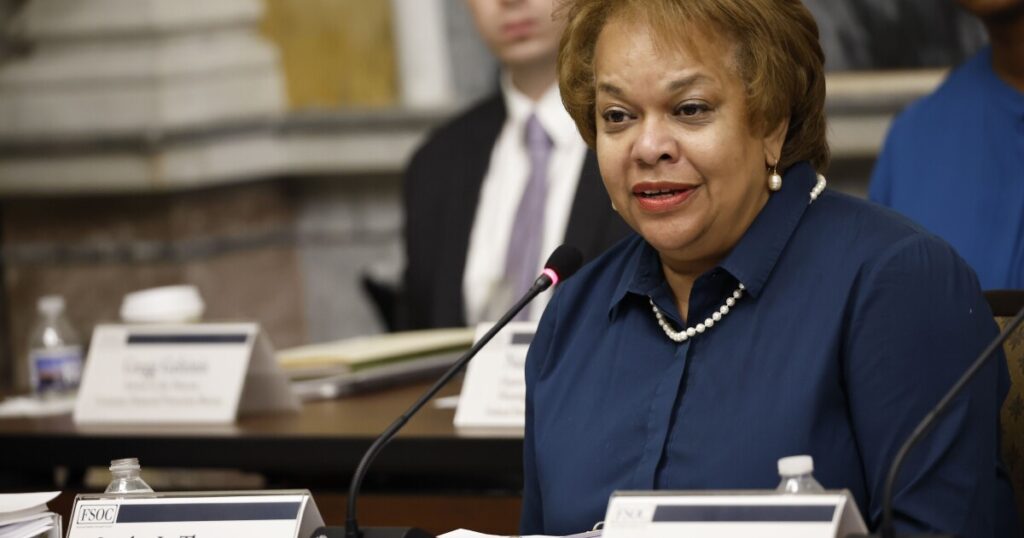Facing an audience of U.S. senators, a leading regulator said
Leaders from the Federal Housing Finance Agency and Department of Housing and Urban Development touched on a range of concerns from property insurance to a title insurance waiver pilot on Thursday. But the current role of Federal Home Loan banks in today’s housing market came up on multiple occasions during the meeting of the Senate Committee on Banking, Housing and Urban Affairs.
“They’re serving all of the states in the United States, and they could do a better job in providing housing development and profitability, affordable housing and community development,” FHFA Director Sandra Thompson said about the FHLBs.
With home affordability and financial industry stability both at top of mind for consumers, bank stakeholders
At the center of any potential policy change is an increase in the required threshold each FHLB needs to provide toward affordable housing programs. Currently, the 11 institutions making up the system are expected to allot 10% of net income toward such initiatives.
“They’re all well capitalized, and they can well afford to provide at least another 10% to help with this housing crisis that we’re having throughout this country,” Thompson said.
Lax oversight of FHLB member institutions also became a frequent criticism lobbed against the system after the regional bank crisis of 2023. While banks are required to demonstrate residential mortgages make up 10% of their assets in order to join an FHLB, they may adjust allocations once they become members, while continuing to take advantage of system financing, Sen. Elizabeth Warren pointed out.
Before Silicon Valley Bank, Signature Bank and First Republic Bank failed last year, each
“We are going to promulgate rulemaking sometime this year to talk about membership — one, to define what the role is of membership, and to also to ask questions about what that threshold should be, because you will have a situation like the one of the three bank failures where you start out with the 10% and meet the requirement. And then the bank’s business model changes and there’s no ongoing checks” Thompson responded.
Thompson also said the system needed to be expanded to include more community development financial institutions, or CDFIs, due to the benefits they brought to underserved and low-to-moderate income areas.
“One of our regulatory asks is to make sure that CDFIs have the same benefits as other small institutions like community banks, so they can continue to build and provide affordable housing in their communities,” she said.
While member banks are able to commit collateral, CDFIs are not able to pledge the same type, making many ineligible. “We wanted to make sure there was parity because we’re talking about small institutions and small members,” Thompson added.
At other points during the hearing, both FHFA and HUD addressed ongoing concerns about property insurers’
“As soon as this week, you will be hearing HUD announced some of the things that we can do. And there’s a whole body of work that we’ll be rolling out, including engaging with the insurance industry,” said the department’s Acting Secretary Adrianne Todman.
The
“We are still in the process of searching for a vendor to help digitize and try to figure out how they can access the title records,” Director Thompson said.


